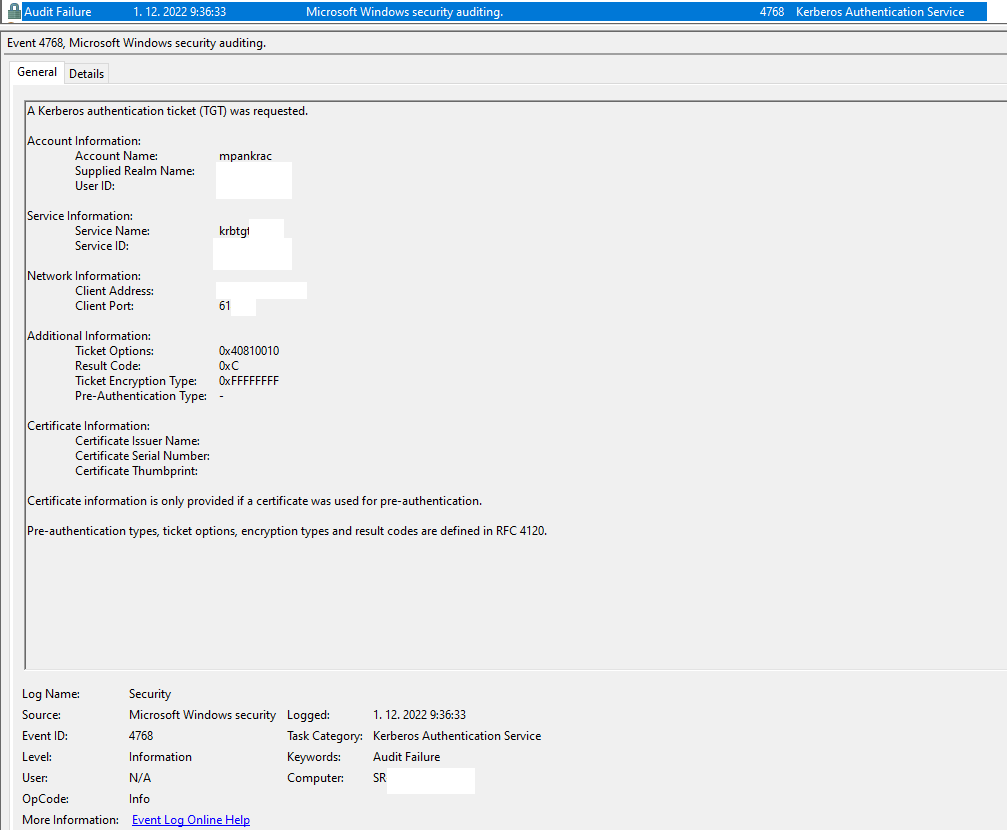
Hello SchwandtnerBoris-0763,
Thank you for posting in our Q&A forum.
Based on the description "we upgraded our AD Servers", how did you upgrade the AD servers? In-place upgrade the operating system of the AD server or add new server to the same domain and then promote this server to Domain Controller?
If you performed In-place upgrade the operating system of the AD server, the logs should not be missing, here is a similar thread for your references.
If you added new server to the same domain and then promote this server to Domain Controller, I find not all the logs on old server will replicate to new server.
For example:
There is no event ID 4625 On old AD server.

There are 4 event ID 4625 On new AD server.

There are 24347 entries for Security logs on old AD server.

There are 13271 entries for Security logs on old AD server.

Hope the information above is helpful.
Best Regards,
Daisy Zhou
============================================
If the Answer is helpful, please click "Accept Answer" and upvote it.


